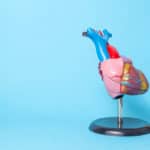Factors Influencing Self-Recovery from Hepatitis C
Source: World Journal of Gastroenterology
Date: August 29, 2007
www.sciencedaily.com
Who Will Recover Spontaneously From Hepatitis C Virus Infection?
Science Daily — More than 3% of world population is infected with hepatitis C virus (HCV). The outcome of HCV infections is either self recovery or chronic hepatitis, and many of the chronic infections will develop into liver cirrhosis or liver cancer. Since there is no cure for chronic hepatitis C, nor is there any approved vaccine for this virus, hepatitis C is currently a major health problem worldwide.
Twenty to fifty percent of HCV infected patients recovers spontaneously. The hepatitis C patients and their relatives like to know if his/her infection would fall into the category for self recovery.
A research article to be published on August 21 in the World Journal of Gastroenterology addresses this question.
The research team led by Dr. Mihm from Georg-August-Universität spent more than 8 years working with a cohort of 67 patients who spontaneously recovered from HCV infection. In addition to these, the researchers included a similar number of patients with chronic HCV infection. Large sample size allowed these investigators to obtain results with great statistical significance, and to draw very reliable conclusions.
One conclusion reported by the investigators is, patients who self recovered usually have lower levels of HCV antibody. Thus patients with lower HCV antibody titer may have a brighter clinical outcome. However, for a practical standard to be established to define a low HCV antibody titer, more effort is needed by investigators in the future.
Another interesting conclusion reached by these investigators is, co-infection by hepatitis B virus (HBV) is associated with a higher possibility of self recovery. The investigators suggested that the infection of HBV interferes with the HCV replication, which would finally lead to virus eradiacation.. HCV patients co-infected by hepatitis A virus also have a better chance of self recovery, possibly by a similar mechanism.
Active iv drug users are less likely to self recover, for a couple of reasons: 1, they have a higher incidence of re-infection; 2, drugs have been shown to inhibit the expression of antiviral cytokines such as IFN-a and IFN-g; 3, HCV replication has been shown to be enhanced both by morphine use and morphine withdrawal.
Several different genotypes of HCV were discovered. The HCV genotype studied by Dr. Milm¡¯s group is type 1b, which is the prevalent genotype in Germany, and in China.
Note: This story has been adapted from a news release issued by World Journal of Gastroenterology.







